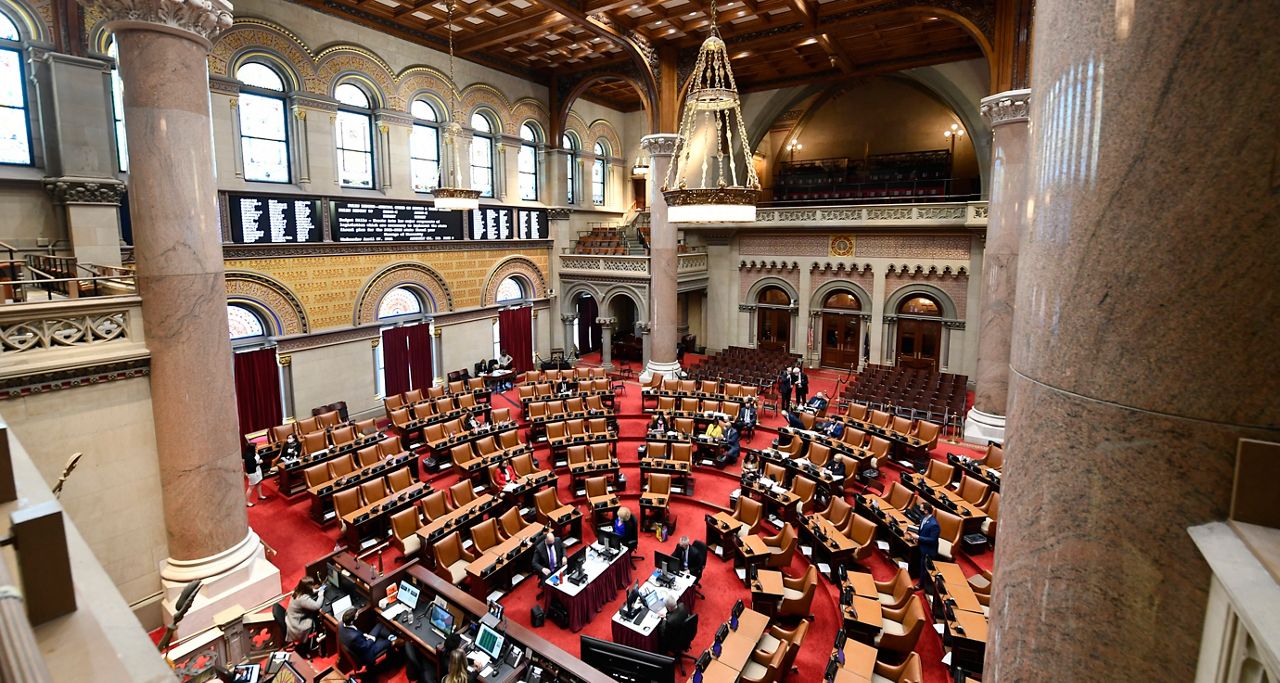New York's state budget is due in the next day, but it's unlikely a deal can be reached by then.
But despite going into overtime with the negotiations, state lawmakers and Gov. Kathy Hochul have signaled they can reach compromises on the key issues that divide them.
Here are five issues facing the state budget.
1. Bail law changes
Gov. Kathy Hochul has called for ending the "least restrictive" standard for when judges consider bail for serious criminal charges. Hochul has called the proposal a way of creating "clarity" for judges with the bail law.
Public safety and crime were dominant themes in last year's elections, and polls have shown consistently voters remained broadly concerned with the issue. So when lawmakers returned to Albany at the start of the year, they immediately acknowledged the concerns for New Yorkers, even if they have not publicly embraced what Hochul wants to do.
But on Thursday, top Democrats in the state Senate and Assembly have said they were open to clarifications of the law as long as it keeps its original intent: ensuring a more equitable criminal justice system in New York.
2. Housing
For the last month, Hochul has been traveling around New York to tout her plan to expand available housing units by 800,000 in the next 10 years. The proposals include a mix of carrots and sticks: She wants money to help local governments to expand infrastructure like water and sewer, as well as a statewide entity to allow qualified projects to move forward even if they do not receive local support.
The proposal has drawn considerable opposition from suburban officials, especially in parts of the Hudson Valley and on Long Island. Progressives, meanwhile, have called for a measure that would make it harder for landlords to evict tenants and raise their rents.
Lawmakers have not specifically backed that measure, known as Good Cause Eviction. But a potential compromise that would include more money for low-income renters to stave off eviction could be considered.
3. Minimum wage
Hochul has supported a plan that would link the state's minimum wage to the rate of inflation, with a cap if costs run too high. Legislatively, Democratic lawmakers want to first increase the state's minimum wage, potentially to more than $20 an hour, and link it to the cost of living going forward.
Supporters of an accelerated wage hike have said the current wage -- $15 in the New York City area and $14.20 north of Westchester County -- has not kept pace with rising costs. Business organizations in New York have opposed the change, arguing the cost of doing business has only skyrocketed in New York.
4. Taxing rich New Yorkers
Early on, Hochul has touted a budget plan that does not increase income tax rates. Democrats in the Senate and Assembly have advanced proposals to increase taxes on some of the richest New Yorkers. The plans would hike tax rates on those who earn between $5 million and $25 million from 10.3% to 10.8%. The tax rate for people who earn more than $25 million would increase from 10.9% to 11.4% under the Democratic proposals.
Supporters of increasing taxes on upper-income New Yorkers want the additional revenue to boost safety net programs, many of which have lost federal funding after pandemic-related aid dried up.
But some budget watchdogs have warned the state should not be relying on the additional tax revenue as a source of recurring money and instead focus on slowing the growth of spending in the budget.
5. Electric building measures
Environmental advocates have said they heartened both the majority Democrats and the governor are on the same page about transitioning to more renewable forms of energy and cleaner burning fuels in the coming years. How they get to that point -- and potentially make for deeper changes for how New Yorkers live their lives -- remains unclear at this point.
Hochul is backing a proposal to end natural gas and other fossil-fuel burning hookups in new construction in the coming years. Democrats have proposed a year sooner as well as a wider swath of new buildings.
The change, if approved, would not affect existing appliances like gas stoves. But lawmakers have said the coming years will be more complicated in changing out gas appliances. And Republicans have said the proposals are far too costly for many New Yorkers who are already facing spiking utility bills during the past winter.


